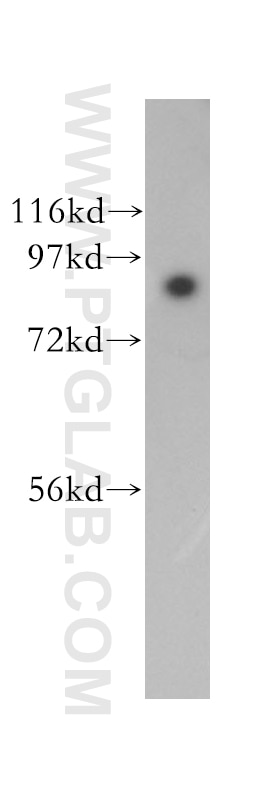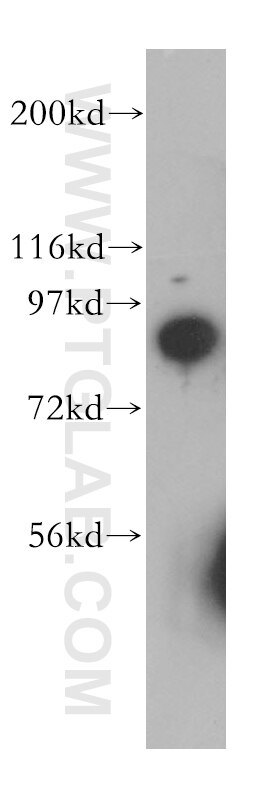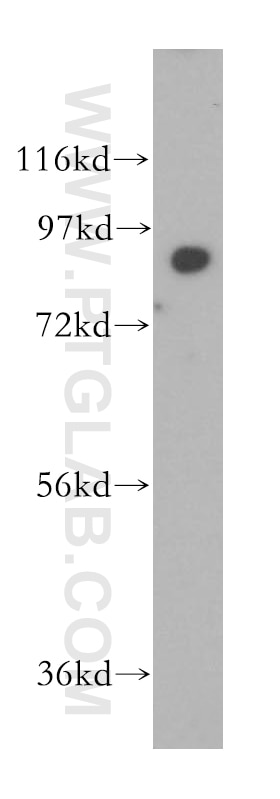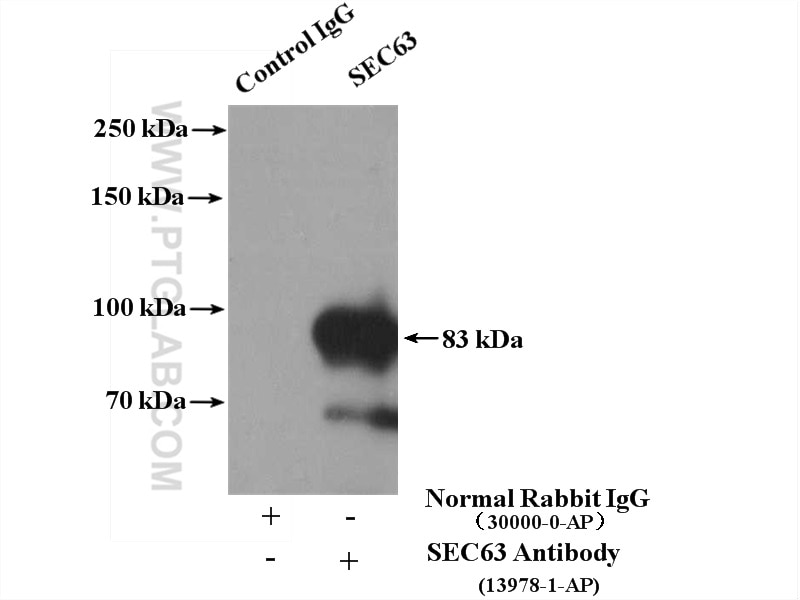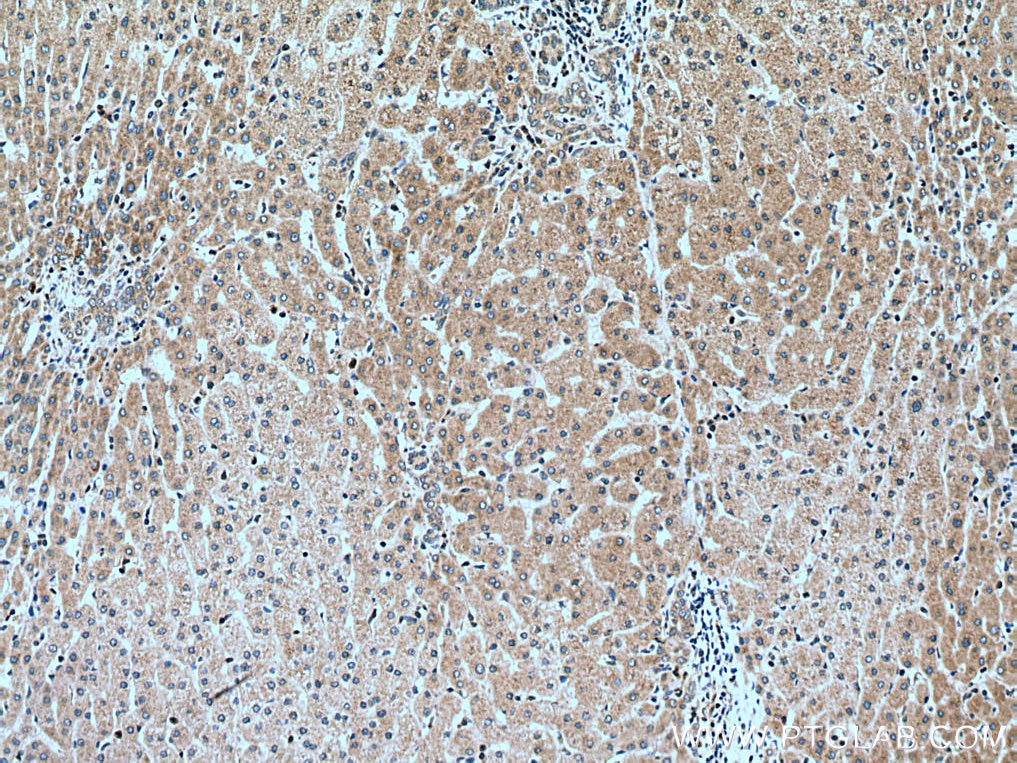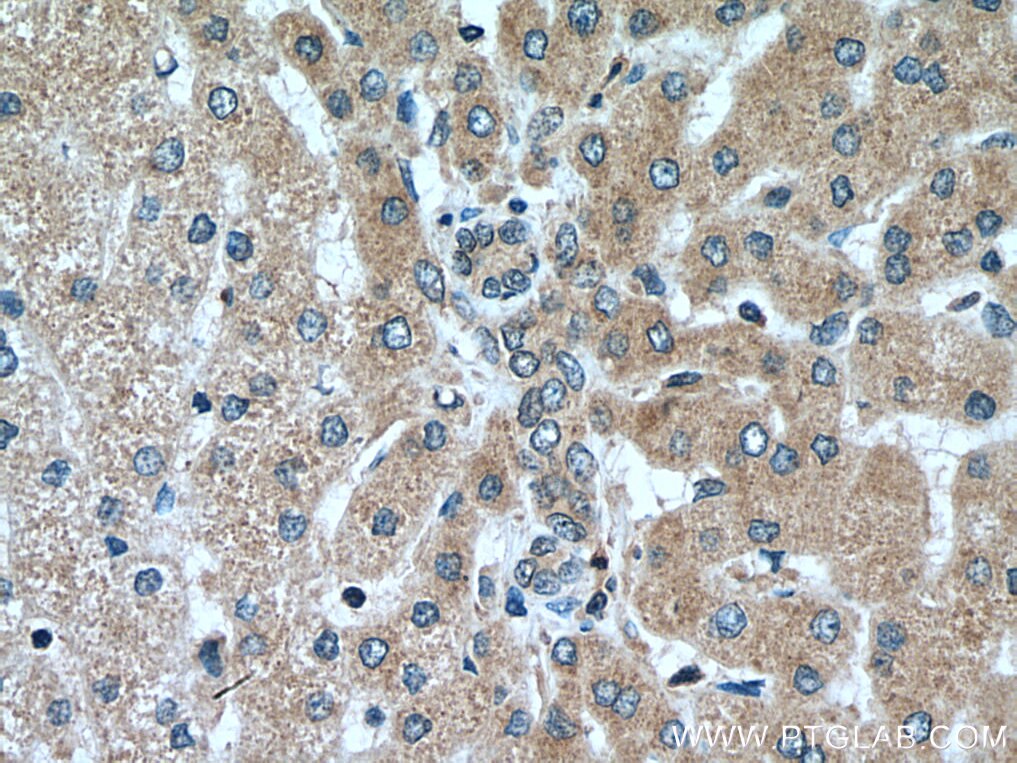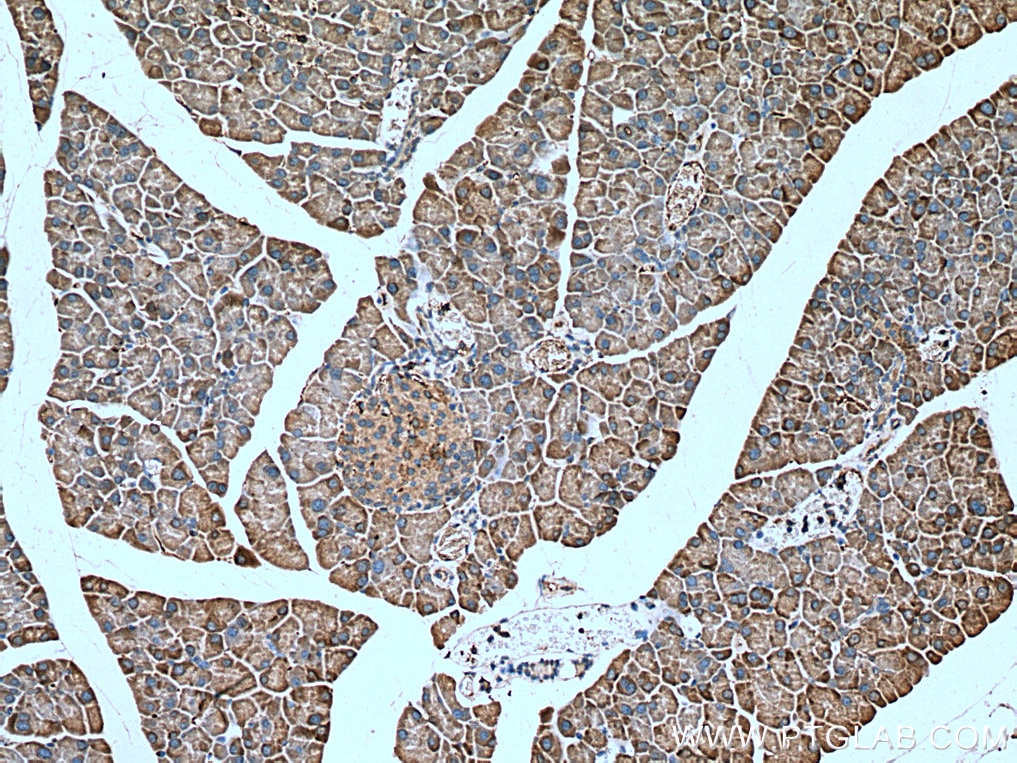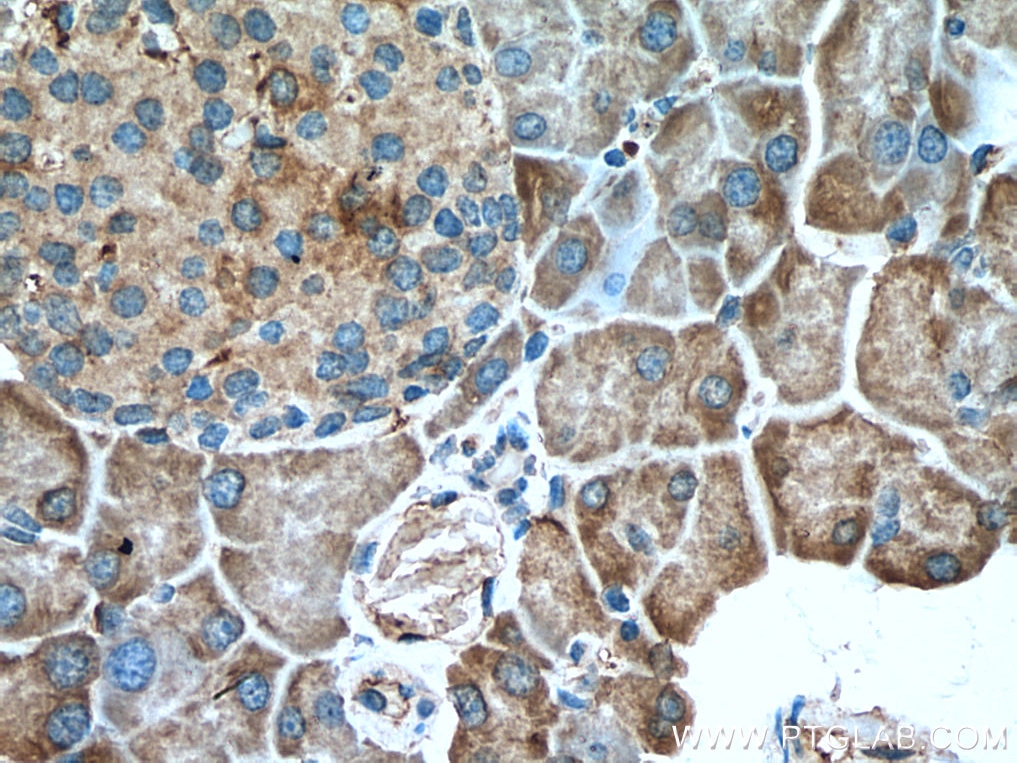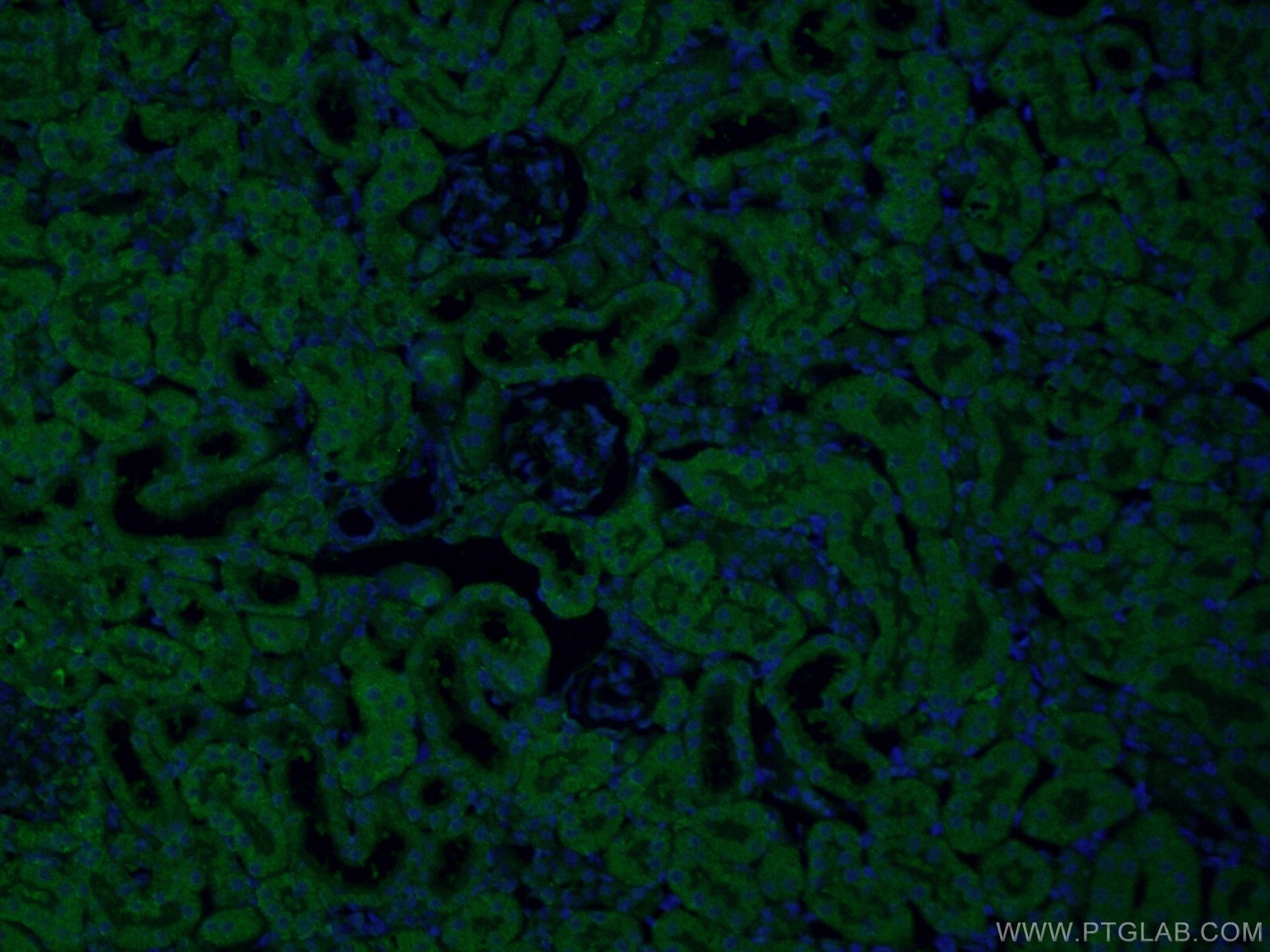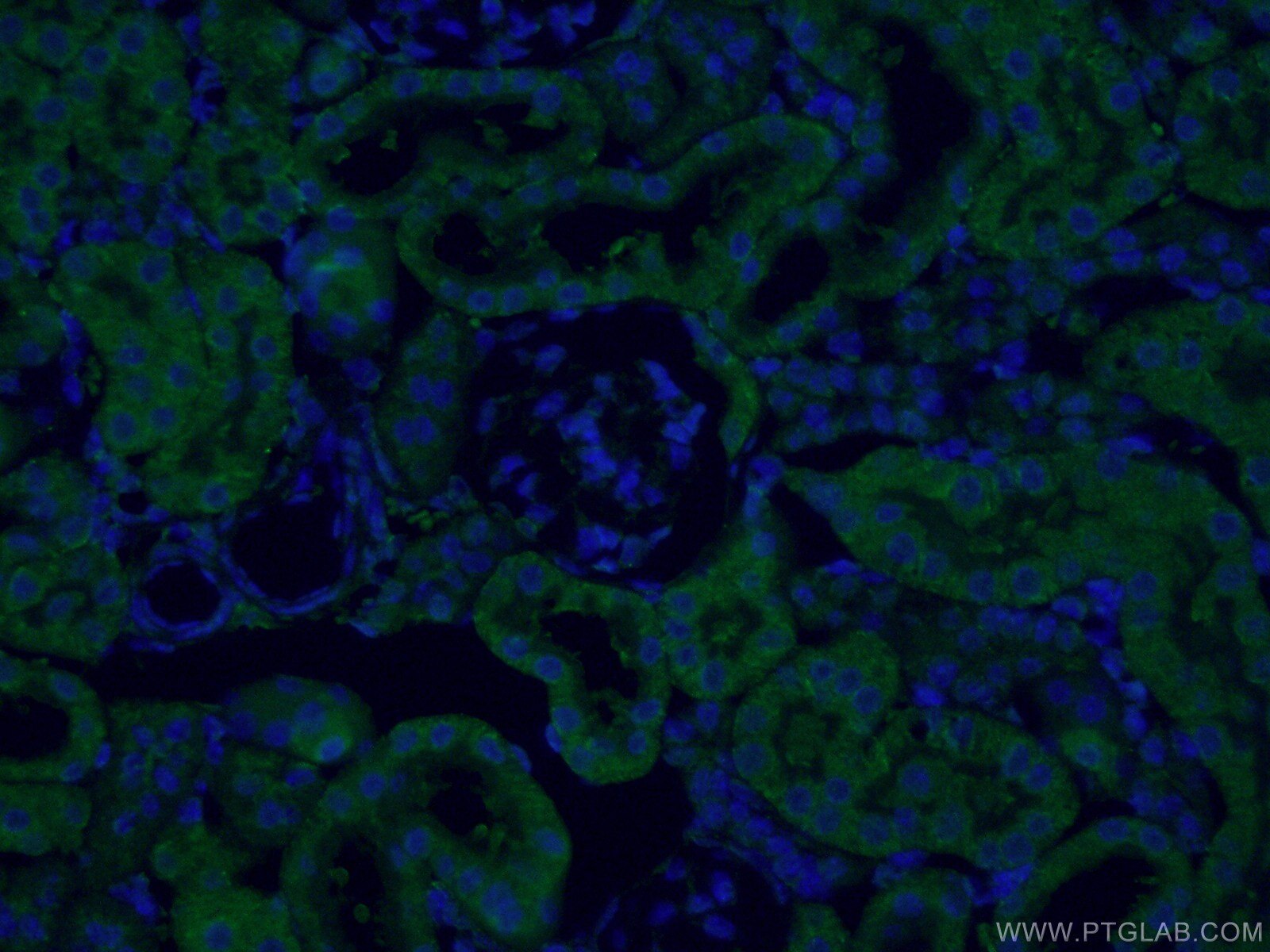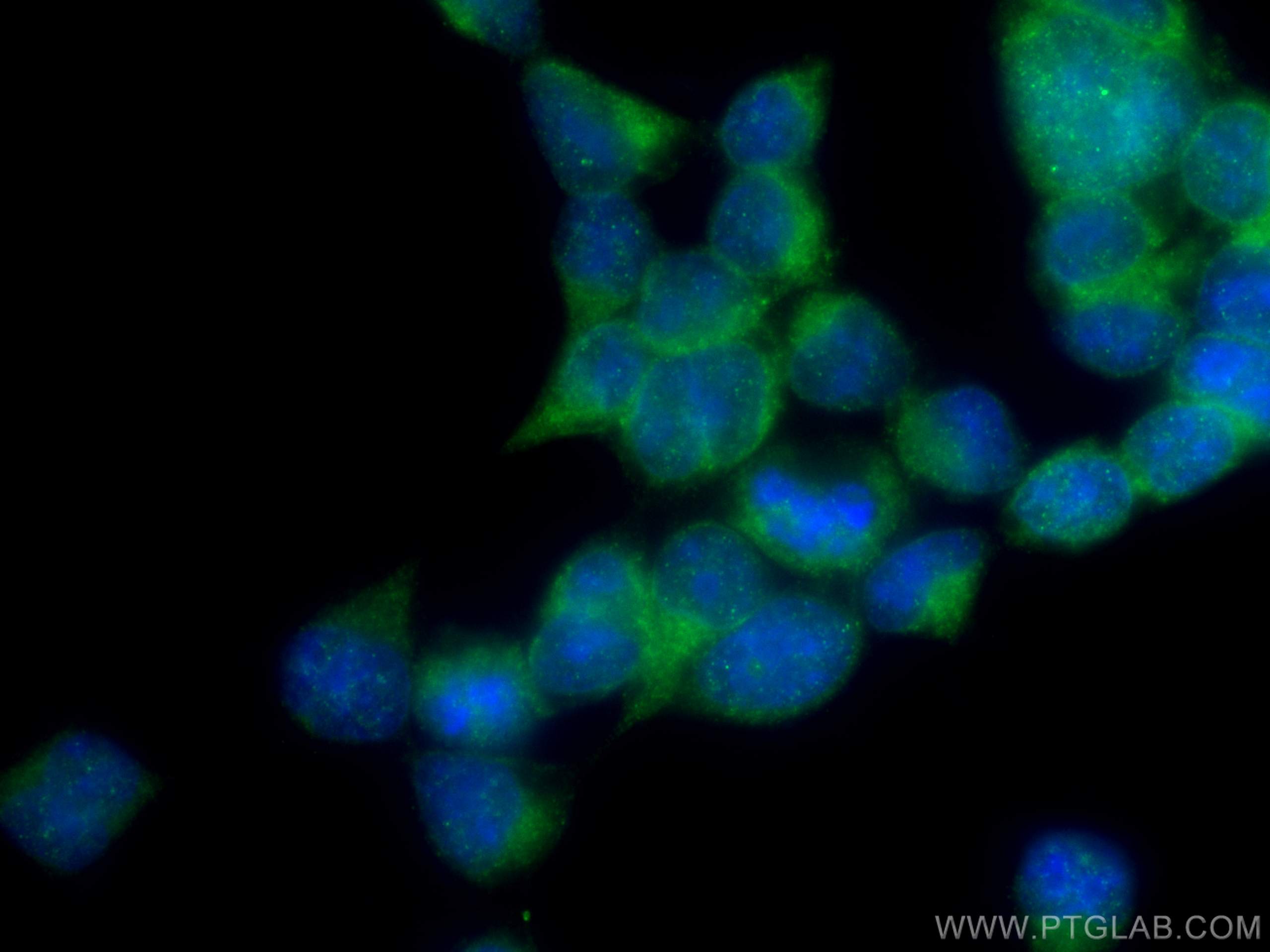Tested Applications
| Positive WB detected in | A431 cells, HEK-293 cells, PC-3 cells |
| Positive IP detected in | A431 cells |
| Positive IHC detected in | human liver tissue, mouse pancreas tissue Note: suggested antigen retrieval with TE buffer pH 9.0; (*) Alternatively, antigen retrieval may be performed with citrate buffer pH 6.0 |
| Positive IF-P detected in | mouse kidney tissue |
| Positive IF/ICC detected in | HEK-293 cells |
Recommended dilution
| Application | Dilution |
|---|---|
| Western Blot (WB) | WB : 1:1000-1:4000 |
| Immunoprecipitation (IP) | IP : 0.5-4.0 ug for 1.0-3.0 mg of total protein lysate |
| Immunohistochemistry (IHC) | IHC : 1:50-1:500 |
| Immunofluorescence (IF)-P | IF-P : 1:50-1:500 |
| Immunofluorescence (IF)/ICC | IF/ICC : 1:50-1:500 |
| It is recommended that this reagent should be titrated in each testing system to obtain optimal results. | |
| Sample-dependent, Check data in validation data gallery. | |
Published Applications
| KD/KO | See 2 publications below |
| WB | See 5 publications below |
| IF | See 1 publications below |
Product Information
13978-1-AP targets SEC63 in WB, IHC, IF/ICC, IF-P, IP, ELISA applications and shows reactivity with human, mouse, rat samples.
| Tested Reactivity | human, mouse, rat |
| Cited Reactivity | human, mouse |
| Host / Isotype | Rabbit / IgG |
| Class | Polyclonal |
| Type | Antibody |
| Immunogen |
CatNo: Ag5021 Product name: Recombinant human SEC63 protein Source: e coli.-derived, PGEX-4T Tag: GST Domain: 409-760 aa of BC047221 Sequence: IQDLVSLKESDRHTLLHFLEDEKYEEVMAVLGSFPYVTMDIKSQVLDDEDSNNITVGSLVTVLVKLTRQTMAEVFEKEQSICAAEEQPAEDGQGETNKNRTKGGWQQKSKGPKKTAKSKKKKPLKKKPTPVLLPQSKQQKQKQANGVVGNEAAVKEDEEEVSDKGSDSEEEETNRDSQSEKDDGSDRDSDREQDEKQNKDDEAEWQELQQSIQRKERALLETKSKITHPVYSLYFPEEKQEWWWLYIADRKEQTLISMPYHVCTLKDTEEVELKFPAPGKPGNYQYTVFLRSDSYMGLDQIKPLKLEVHEAKPVPENHPQWDTAIEGDEDQEDSEGFEDSFEEEEEEEEDDD Predict reactive species |
| Full Name | SEC63 homolog (S. cerevisiae) |
| Calculated Molecular Weight | 88 kDa |
| Observed Molecular Weight | 83-90 kDa |
| GenBank Accession Number | BC047221 |
| Gene Symbol | SEC63 |
| Gene ID (NCBI) | 11231 |
| RRID | AB_2186546 |
| Conjugate | Unconjugated |
| Form | Liquid |
| Purification Method | Antigen affinity purification |
| UNIPROT ID | Q9UGP8 |
| Storage Buffer | PBS with 0.02% sodium azide and 50% glycerol, pH 7.3. |
| Storage Conditions | Store at -20°C. Stable for one year after shipment. Aliquoting is unnecessary for -20oC storage. 20ul sizes contain 0.1% BSA. |
Background Information
SEC63 is an integral ER membrane protein. SEC63 and SEC62 form a dimeric complex and play a central role in the translocation of nascent and newly synthesized precursor polypeptides into the ER. Mutations in the gene encoding SEC63 cause polycystic liver disease in humans. The intact SEC63 protein is usually detected around 83-90 kDa, while smaller cleavage products can be observed by autophagy proteolysis (PMID: 25052096)
Protocols
| Product Specific Protocols | |
|---|---|
| IF protocol for SEC63 antibody 13978-1-AP | Download protocol |
| IHC protocol for SEC63 antibody 13978-1-AP | Download protocol |
| IP protocol for SEC63 antibody 13978-1-AP | Download protocol |
| WB protocol for SEC63 antibody 13978-1-AP | Download protocol |
| Standard Protocols | |
|---|---|
| Click here to view our Standard Protocols |
Publications
| Species | Application | Title |
|---|---|---|
Mol Cell Cotranslational Stabilization of Sec62/63 within the ER Sec61 Translocon Is Controlled by Distinct Substrate-Driven Translocation Events. | ||
J Am Soc Nephrol Essential Role of X-Box Binding Protein-1 during Endoplasmic Reticulum Stress in Podocytes.
| ||
J Biol Chem ER entry pathway and glycosylation of GPI-anchored proteins are determined by N-terminal signal sequence and C-terminal GPI-attachment sequence
| ||
Neural Regen Res AAV2-PDE6B restores retinal structure and function in the retinal degeneration 10 mouse model of retinitis pigmentosa by promoting phototransduction and inhibiting apoptosis |

